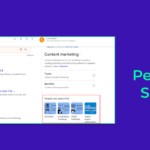Table Of Content
According to Google’s recent update, using canonical link elements is not advisable for syndicated content. The recommended approach is to block access to the syndicated content to prevent duplication.
Here is the link to the new help document shared by Google.
Google has recently updated its guidelines and now includes a section that advises against using canonical tags for syndicated content. This means it is no longer recommended to use this tag to manage content published on other websites.
If you compare the current page to an archived version, you will notice that Google has removed a line that previously suggested using a canonical URL for syndicated content.
What’s Added Instead?
Here Is The Paragraph That Has Been Added:
“The canonical link element is not recommended for those who wish to avoid duplication by syndication partners, because the pages are often very different. The most effective solution is for partners to block indexing of your content. For more, see Avoid article duplication in Google News, which also has advice about blocking syndicated content from Google Search.”
Earlier, Google’s advice required those who syndicated your content to use a canonical tag to communicate to Google that the content is being copied from your site. It didn’t always stop syndicated content from outranking the original source.
Takeaway!
It seems that Google is changing its tune using the canonical tag to prevent duplicate syndicated content. Rather than using this tag, Google now recommends blocking the page with the syndicated content from being indexed to avoid any potential duplication issues.
Read Also:








